On View
New Exhibition Explores How Van Gogh’s Work Modernized Painting
Van Gogh produced around 500 works during his time in Provence.
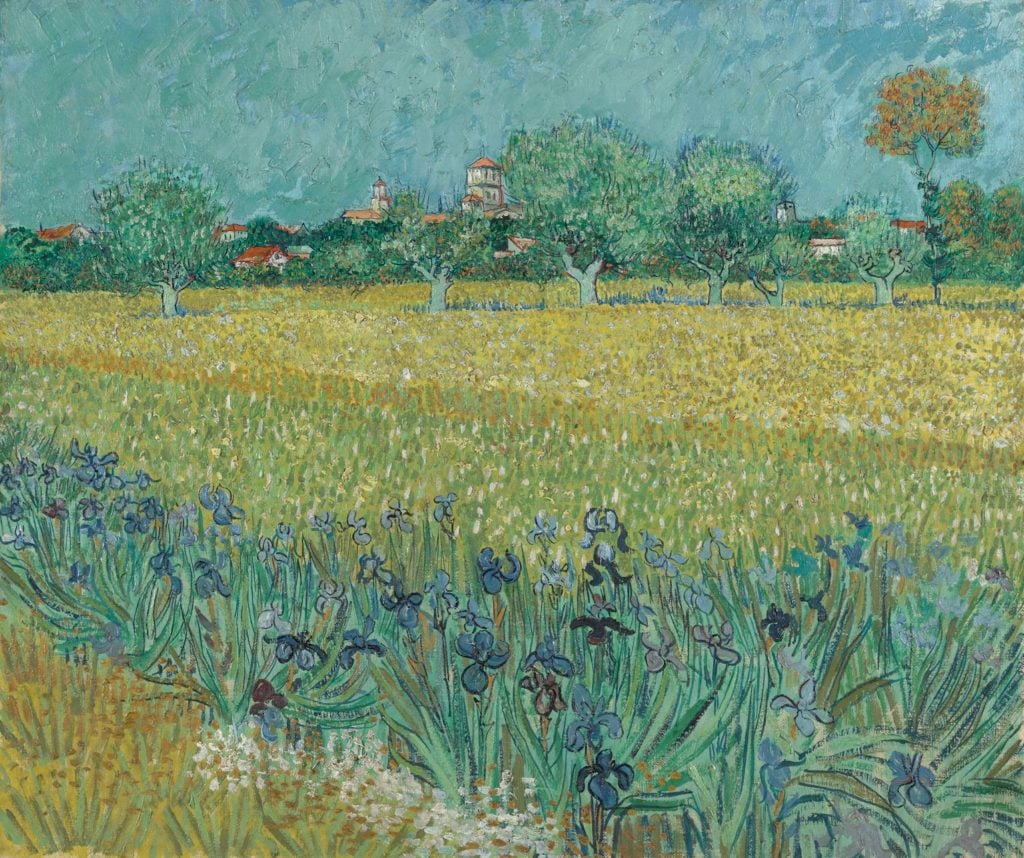
Van Gogh produced around 500 works during his time in Provence.

Carol Civre

A major Vincent Van Gogh retrospective titled “Van Gogh in Provence: Modernizing Tradition,” on view at Fondation Vincent Van Gogh in Arles, brings together 31 paintings from the collections of the Van Gogh Museum in Amsterdam and the Kröller-Müller Museum in Otterlo.
Another Van Gogh exhibition titled “On the Verge of Insanity: Van Gogh and His Illness” at the Van Gogh Museum runs concurrent to this retrospective. But while the exhibition in Amsterdam is focused on the artist’s life, this retrospective in Arles focuses on his work and its relevance in the evolution of contemporary art.
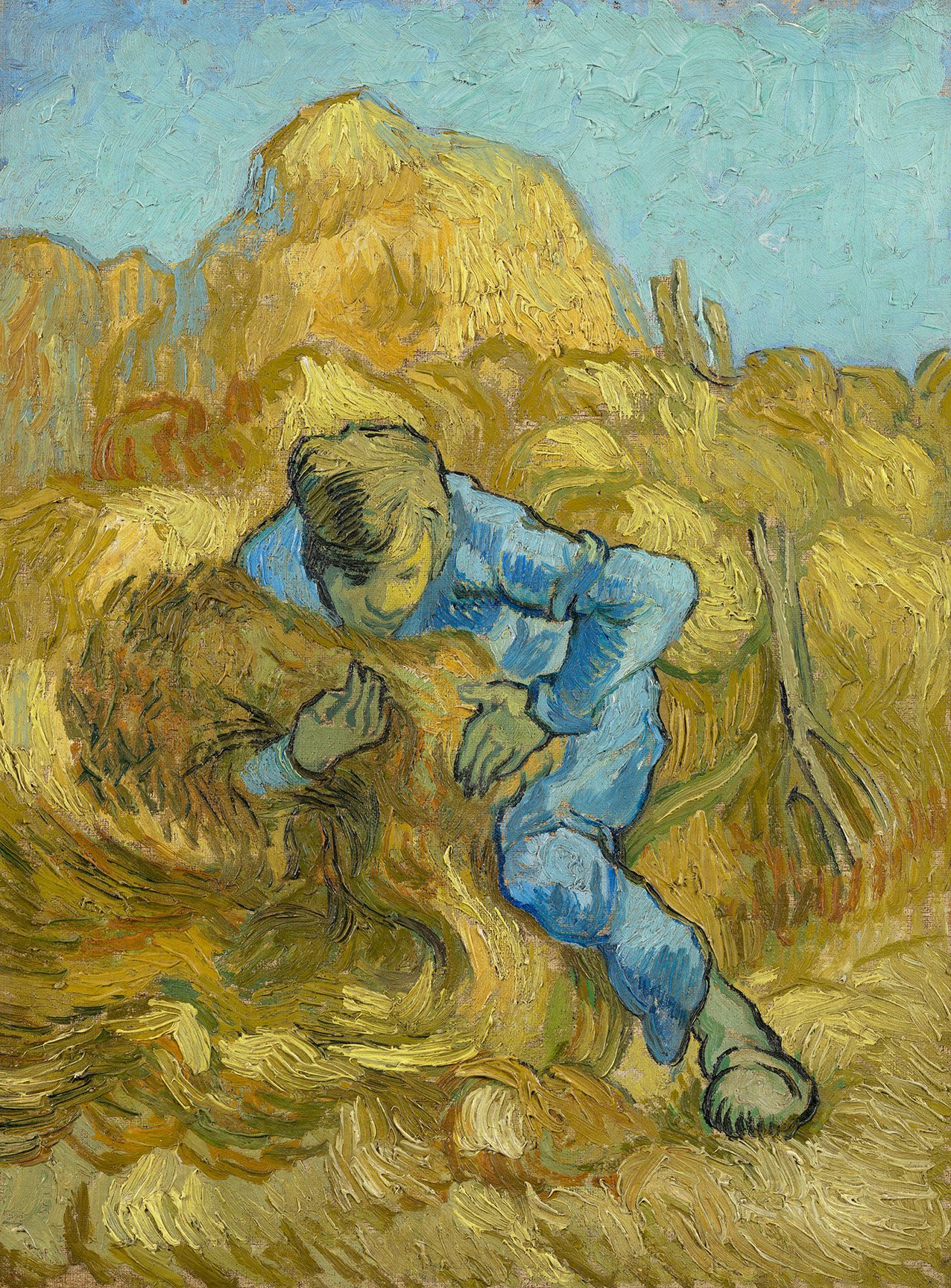
Vincent van Gogh, The Sheaf-Binder (after Millet), (1889). Courtesy of Fondation Vincent Van Gogh, Arles.
Curated by one of the foremost Van Gogh specialists Sjraar van Heugten, the paintings in the retrospective “Van Gogh in Provence” are a testament to seven years of intense activity by the artist, concluding with his stay in Providence, where he produced around 500 works. From his portrayal of rural peasants in Brabant and his first self-portrait painted in Paris to his discovery of the southern light’s ability to exalt color and nature in Provence, these paintings follow the artist from the early stages of his career up to his death. Of the 31 paintings on view, 29 are being exhibited in Arles for the first time.
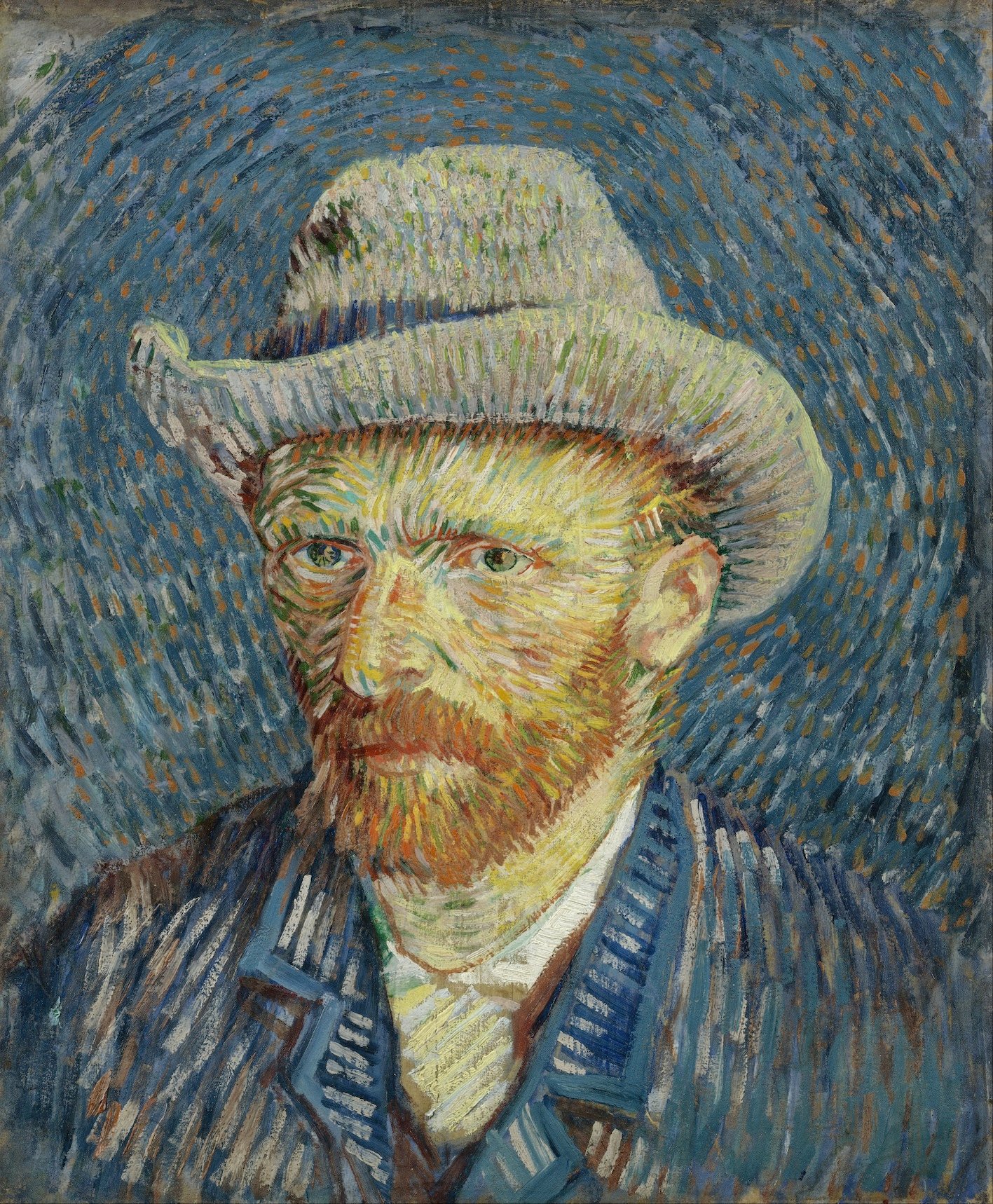
Vincent van Gogh, Self-Portrait with Grey Felt Hat, Paris, (1887). Courtesy of Fondation Vincent Van Gogh, Arles.
A progression becomes evident not only through narrative, but also through technique, which escalates in more exaggerated brush strokes over the course of the exhibition’s rooms.
Nonetheless, the paintings remain cohesive in their choice of motifs—mainly representing landscapes, portraits, and still lifes—which Van Gogh focused on following the steps of his masters including, amongst others, Rembrandt, Hals, Delacoix, and Millet. These paintings exemplify the artist’s constant experimentation with modernizing such subject matters, foreshadowing his later influence on generations of artists to come.
Related: Van Gogh Museum Offers Advice to Collectors in Bid to Raise Funds
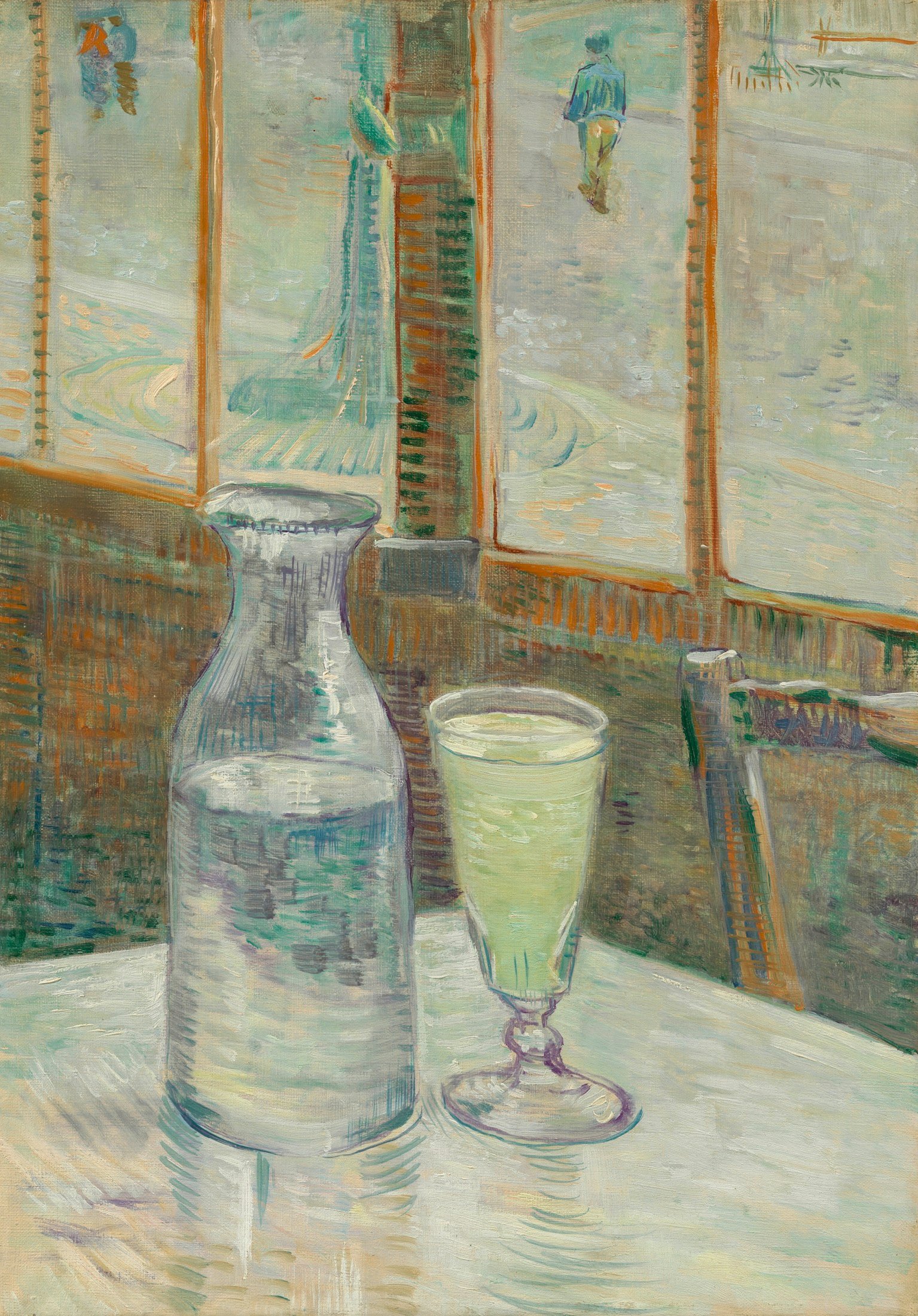
Vincent van Gogh, Café Table with Absinthe, (1887). Courtesy of Fondation Vincent Van Gogh, Arles.
Accompanying Van Gogh’s 31 paintings is a concurrent exhibition titled “Suffer Well” by contemporary British painter Glenn Brown, which brings together around 30 works in varying mediums. Viewed together, the two exhibitions create a dialogue between the works of Van Gogh in shaping contemporary art practice.
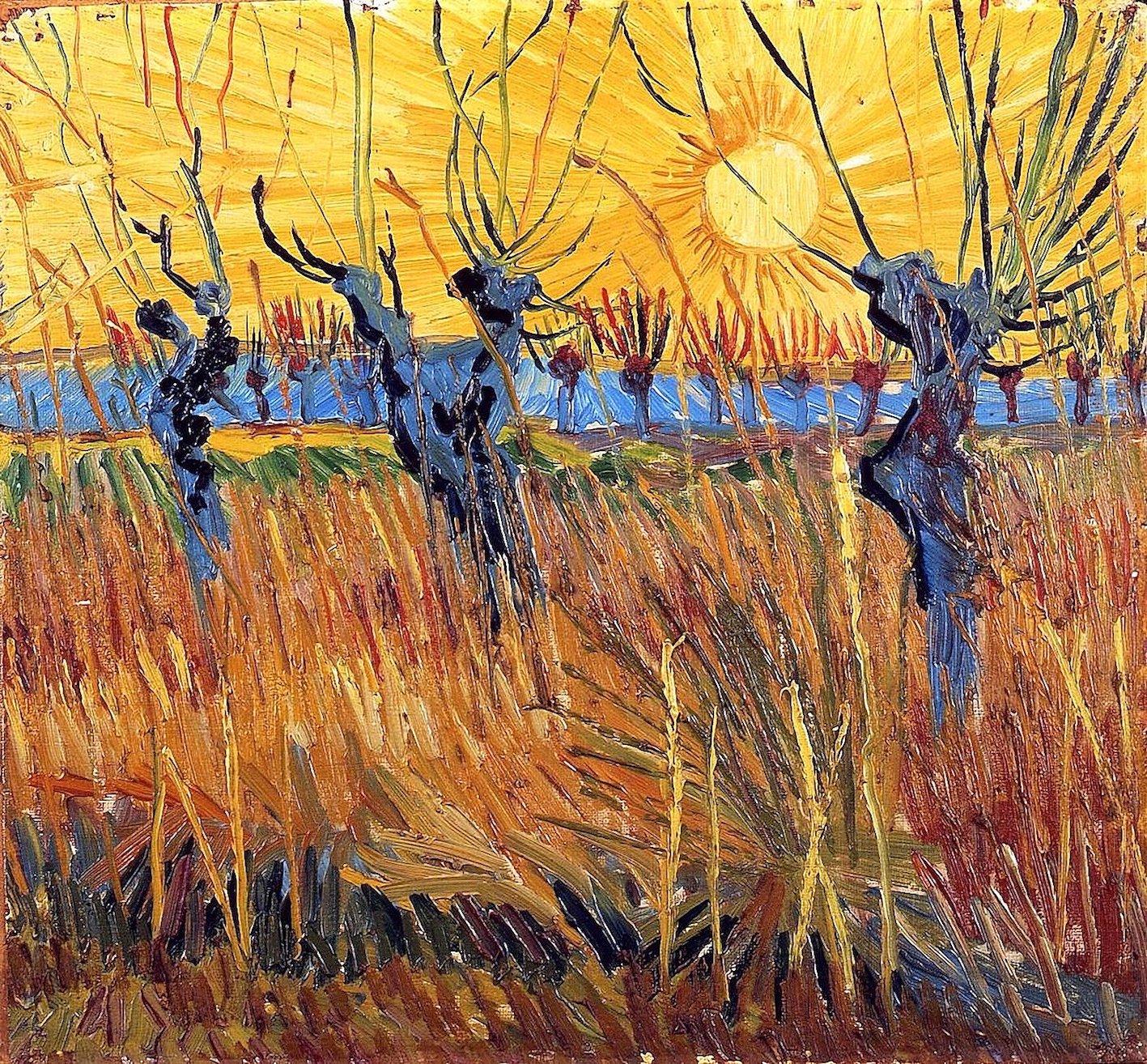
Vincent van Gogh, Pollard Willows at Sunset, (1888). Courtesy of Fondation Vincent Van Gogh, Arles.
“Van Gogh in Provence: Modernizing Tradition” will be on view at Fondation Vincent Van Gogh Arles until September 11, 2016.